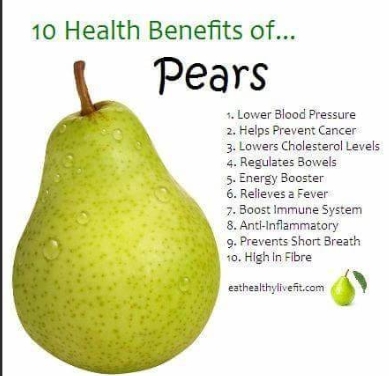When it comes to health, small changes often lead to the biggest improvements. While it may be tempting to look for quick fixes or drastic transformations, the most sustainable and effective health practices are those that become a natural part of your daily routine. By making small adjustments in how you eat, move, and care for your body, you can improve your overall well-being and enjoy lasting health benefits.
One of the most powerful ways to boost your health is through your diet. Eating a variety of whole foods—such as vegetables, fruits, lean proteins, whole grains, and healthy fats—can provide your body with the nutrients it needs to function at its best. Rather than focusing on restrictive diets or eliminating entire food groups, aim to add more nutritious options to your meals.
Start by increasing your intake of vegetables. These nutrient-packed foods are high in fiber, vitamins, and antioxidants that support your immune system and promote digestive health. Try adding vegetables to every meal, whether it’s leafy greens in a salad, roasted root vegetables as a side dish, or blended greens in a smoothie. The goal is to make vegetables the star of your plate, as they will help fill you up and nourish your body.
Fruits also offer a wealth of benefits, including boosting your immune system and improving skin health. Berries, citrus fruits, apples, and bananas are all rich in vitamins, antioxidants, and fiber. Adding a handful of fresh fruit to your breakfast or as a snack between meals can satisfy your sweet cravings while providing a healthy source of nutrients.
Whole grains, such as quinoa, brown rice, and oats, should be your go-to carbohydrate source. These grains are packed with fiber and provide a steady release of energy throughout the day. By swapping refined grains (such as white rice and white bread) for whole grains, you help stabilize your blood sugar levels, keeping your energy consistent and reducing cravings.
Protein is another key component of a balanced diet. Lean proteins, such as chicken, turkey, fish, eggs, and plant-based options like beans, lentils, and tofu, support muscle repair, immune function, and satiety. Aim to include a variety of protein sources in your diet to ensure you get all the essential amino acids your body needs.
Healthy fats are often misunderstood, but they are crucial for maintaining heart health and brain function. Avocados, nuts, seeds, olive oil, and fatty fish like salmon are excellent sources of unsaturated fats. These fats also help to keep you feeling full and satisfied, reducing the likelihood of overeating later on.
In addition to a well-rounded diet, staying hydrated is another simple but essential habit for optimal health. Drinking enough water supports digestion, circulation, and temperature regulation, while also keeping your skin hydrated. Dehydration can cause fatigue, headaches, and poor concentration, so aim to drink water throughout the day. You can also boost hydration with water-rich foods like cucumbers, watermelon, and citrus fruits.
Exercise is another key factor in maintaining good health, but it doesn’t require hours at the gym to be effective. The key to incorporating exercise into your life is finding activities you enjoy and making them part of your routine. Whether it’s walking, swimming, cycling, yoga, or dancing, the goal is to move your body regularly.
Even small amounts of physical activity can have a significant impact on your health. Aim for at least 30 minutes of moderate exercise most days of the week, but if that feels too daunting, break it up into shorter sessions. A 10-minute walk after each meal can help improve digestion, boost mood, and increase energy. Over time, these small efforts will add up to big benefits, including improved heart health, muscle strength, and better mood regulation.
Another essential aspect of well-being is getting enough quality sleep. Sleep is when your body repairs itself, processes emotions, and recharges for the day ahead. Poor sleep can lead to irritability, fatigue, and a weakened immune system, which makes it harder to function at your best. Aim for 7 to 9 hours of sleep each night to ensure you’re getting the restorative rest your body needs.
To improve your sleep quality, create a relaxing bedtime routine. Avoid electronics, such as phones or computers, for at least an hour before bed, as the blue light emitted from screens can disrupt your natural sleep cycle. Instead, engage in calming activities like reading a book, practicing gentle yoga, or listening to soothing music. Creating a quiet, dark environment in your bedroom can also help signal to your body that it’s time to sleep.
Stress management is another crucial element of health that many people overlook. Chronic stress can take a toll on your body, leading to issues like high blood pressure, digestive problems, and mental health concerns. Finding ways to manage stress can help prevent these negative effects and improve your overall well-being.
Simple relaxation techniques, such as deep breathing, meditation, and mindfulness, can help reduce stress levels and promote calmness. Even just a few minutes of deep breathing each day can make a big difference in how you feel. Additionally, make time for activities you enjoy, whether it’s spending time with loved ones, engaging in a hobby, or simply taking a walk outside. These moments of joy and relaxation are essential for maintaining balance and reducing the effects of stress.
Lastly, regular check-ups with your healthcare provider are important for preventive care. Regular screenings and check-ups can catch potential health issues early, making treatment more effective and improving long-term outcomes. Whether it’s a routine physical exam, dental check-up, or screening for chronic conditions, these visits ensure you’re staying on top of your health.
Incorporating small, healthy habits into your daily routine can have a lasting impact on your well-being. By focusing on whole foods, staying hydrated, staying active, getting enough sleep, managing stress, and seeking preventive care, you’ll be well on your way to living a healthier, more fulfilling life. Remember, it’s the small, consistent changes that add up over time and lead to lasting improvements in your health.





